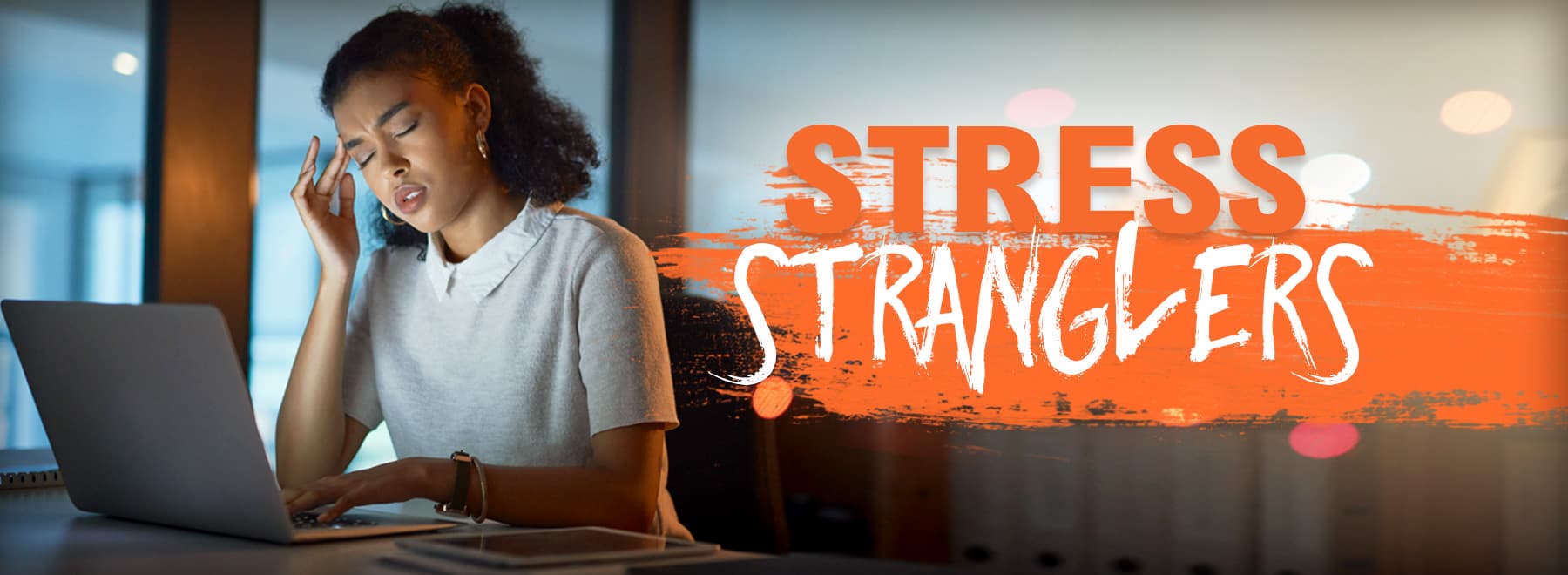Tension headache? Manage stress, not pain, experts say
The year 2020 seems to be causing more than its share of headaches, but University of Mississippi Medical Center experts say there are treatment options other than reaching for the nearest painkillers.

Dr. Riddhiben Patel, UMMC associate professor of pediatric neurology and the state’s only certified pediatric headache medicine specialist, said she’s seen an increasing number of patients complaining of headaches.
“There is stress about the COVID-19 pandemic, and also education changes that have students having more screen time,” Patel said. “On top of that, there’s the weather change. I am seeing that lots of my patients’ headaches are getting worse.”
Dr. Anand Prem, UMMC associate professor of anesthesiology, said he is seeing a similar increase in adults having more tension-related pain.

“We are living in a stressful time,” Prem said. “Some parents are adjusting to homeschooling. Schedules are being changed. People are worried about their jobs and their finances. Parents and children are all spending more time in front of a computer screen.
“All of this can lead to stress and anxiety, causing headaches.”
Stress headaches or tension-type headaches are the most common headache disorder, according to the World Health Organization. These headaches are often described as pressure or tightness, often like a band around the head and sometimes spreading into or from the neck.
“Stress of any kind can cause tension-type headaches,” Patel said. “The pain is mild to moderate and does not get worse with routine physical activity.
“A tension-type headache is typically not accompanied by nausea or vomiting, but can be accompanied by increased sensitivity to light or sound. It may be associated with tenderness of the head and neck muscles, particularly with increased frequency of tension-type headache attacks.”
Prem said pain can also be related to strain and tenderness in the pericranial muscles of the neck and head.
“Extended time at a computer can mean holding these muscles in positions that lead to tension, pain and headaches,” he said.
To lessen patients’ pressure and pain, Prem and Patel shared these seven tips for children and adults:
- Remove the triggers.
If stress is causing headaches, removing that tension trigger is the first and best option. Examine what stress could be the culprit. - Adopt a healthy lifestyle.
Proper hydration (half an ounce for each pound you weigh, every day), nine to 10 hours of sleep each night, daily exercise and regular healthy meals will go a long way toward keeping headaches at bay, Patel and Prem said. - Relax mentally.
Letting go of stress can reduce the frequency of tension-type headaches. Mental relaxation techniques and cognitive behavioral and biofeedback therapies can help in managing conditions that trigger headaches.
Prem recommends yoga, meditation and mindfulness therapy.
“There are even smartphone apps that you can download to learn relaxation techniques.” - Limit screen time.
Working at home or going to school online may make limiting screen time difficult, but even small breaks will make a difference, Prem said.
“Follow the 20-20-20 rule: If you have been working at a computer for 20 minutes, look away from the screen for 20 seconds at something 20 feet away. Taking a 15-minute break for every hour of screen time will also help.” - Ask for help.
A patient’s headache care team may need to include a psychiatrist or psychologist, Prem said, since headaches can often be a symptom of anxiety and depression. - Limit the use of over-the-counter pain medications.
Overusing over-the-counter pain medications can lead to medication overuse headaches, or rebound headaches, Patel and Prem said. Keep the use of over-the-counter pain medications to no more than two to three times per week. - Say no to stronger medications.
“Patients should stay away from combination therapies containing either butalbital, a barbiturate, or opioids for treatment of tension-type headaches because of the risk of tolerance, dependency, toxicity and medication overuse headaches,” Patel said.
To make an appointment at one of UMMC’s clinics, call (888) 815-2005.
The above article appears in CONSULT, UMMC’s monthly e-newsletter sharing news about cutting-edge clinical and health science education advances and innovative biomedical research at the Medical Center and giving you tips and suggestions on how you and the people you love can live a healthier life. Click here and enter your email address to receive CONSULT free of charge. You may cancel at any time.



